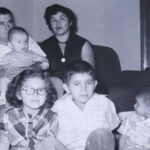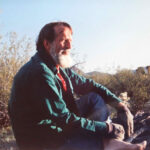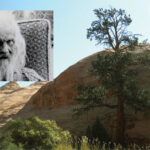
For the last two years, I knew there was a vital part of this story that was missing. Like I’ve said so many times before, what about Abel Aragon’s family? What about his wife and five children? I had read the editorial in the Price Sun-Advocate, written the week after the murders, and I wondered if it was already a plea to their fellow citizens in response to a backlash from the community. How did the Aragon family cope with this insane crime?
But I had no idea how to contact the Aragon family. And if I did, would they even want to talk to me? Even worse, had they seen my articles and resented the fact that I have dragged up this awful piece of history from 60 years ago? I resigned myself to the idea that it was one part of the saga that was beyond my reach. But last November, I opened my email and was stunned to see an email from a member of the Aragon family. At first I was almost afraid to read it. Had I opened old wounds unnecessarily and caused them even more pain?
I opened the email. It was addressed to “To whom it may concern…I know that there is a great likelihood that this won’t find the right person and that this is a shot in the dark, but I was wondering if there’s a way that I could provide some information on a topic that Jim Stiles has been writing about for many many years.”
I read on…



